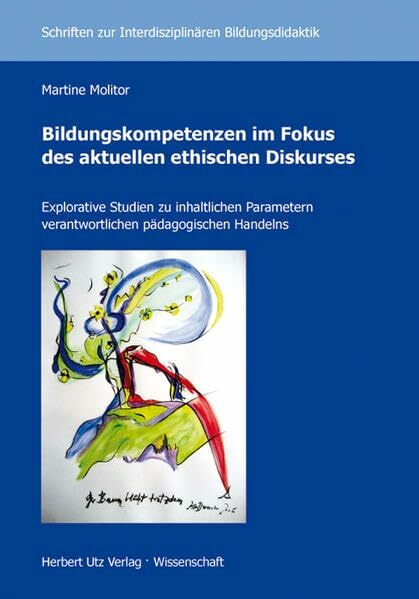
Bildungstrieb
Kurzinformation
inkl. MwSt. Versandinformationen
Artikel zZt. nicht lieferbar
Artikel zZt. nicht lieferbar

Beschreibung
Heute dominieren vereinseitigende Selbstbeschreibungen des Menschen, die ihn gentechnologisch, radikalkonstruktivistisch oder hirnphysiologisch auf sein biologisches Substrat reduzieren. Die Polyphonie, die man noch um 1800 in der Beschreibung des Menschen als das Zugleich von Körper und Geist hören konnte, weicht einer Einstimmig- und Einsinnigkeit kraft einer nur noch naturwissenschaftlichen Selbstthematisierung. Hieran ist zu erinnern, wenn man für die Zeit um 1800 festhält, dass sich die Denker zwar um solch disziplinäre Grenzen zwischen Naturgeschichte, Philosophie und Literatur nicht kümmerten, aber gerade dadurch der Vielstimmigkeit einen Raum eröffneten. Die Verwendung des "Bildungstriebes" in unterschiedlichen Zusammenhängen ist hierfür ein beredtes Zeugnis.Die vorliegende Arbeit zum "Bildungstrieb" will und kann bisherige Rekonstruktionen des Bildungsbegriffs keineswegs ersetzen, sondern bestenfalls ergänzen. Damit aber werden im "Bildungstrieb" Wurzeln des Bildungsbegriffs wieder in Erinnerung gerufen, die jenseits einer rein kognitiven, mentalen, subjektivistischen Zurichtung von "Bildung" liegen.****************Today, the dominant feature of the self-description of humans is one that confines them to their biological substrate. Genetic engineering, radical constructivism or brain physiology are among those disciplines which advocate such a perspective. The polyphonic descriptions of human beings around 1800, pointing out the simultaneity of body and mind, fall silent in favour of a one-sided and limited purely scientific self-thematization. Around 1800, due to their non-compliance regarding disciplinary boundaries between natural history, philosophy and literature, thinkers opened up a space for polyphony. The use of the "Bildungstrieb" (nisus formativus) in various contexts is eloquent evidence for this.The present volume on the "Bildungstrieb" does not and cannot replace previous reconstructions of the concept of "Bildung", but at best complements them by drawing the reader's attention once again to the roots of the concept of "Bildung" in the "Bildungstrieb" that lie beyond a purely cognitive, mental, subjectivist understanding of "Bildung". von Witte, Egbert
Produktdetails

So garantieren wir Dir zu jeder Zeit Premiumqualität.
Über den Autor

- paperback
- 284 Seiten
- Erschienen 2024
- Waxmann

- paperback
- 328 Seiten
- Erschienen 2025
- Waxmann

- Kartoniert
- 192 Seiten
- Erschienen 2020
- Waxmann

- Kartoniert
- 180 Seiten
- Erschienen 2017
- Beltz

- paperback
- 296 Seiten
- Erschienen 2016
- Springer VS

- Kartoniert
- 208 Seiten
- Erschienen 2015
- UTB GmbH

- Kartoniert
- 192 Seiten
- Erschienen 2021
- Waxmann

- Kartoniert
- 233 Seiten
- Erschienen 2020
- Iudicium

- paperback
- 244 Seiten
- Erschienen 2013
- Springer

- Kartoniert
- 192 Seiten
- Erschienen 2020
- Waxmann

- Kartoniert
- 644 Seiten
- Erschienen 2018
- Beltz Juventa

- Kartoniert
- 170 Seiten
- Erschienen 2022
- Waxmann

































